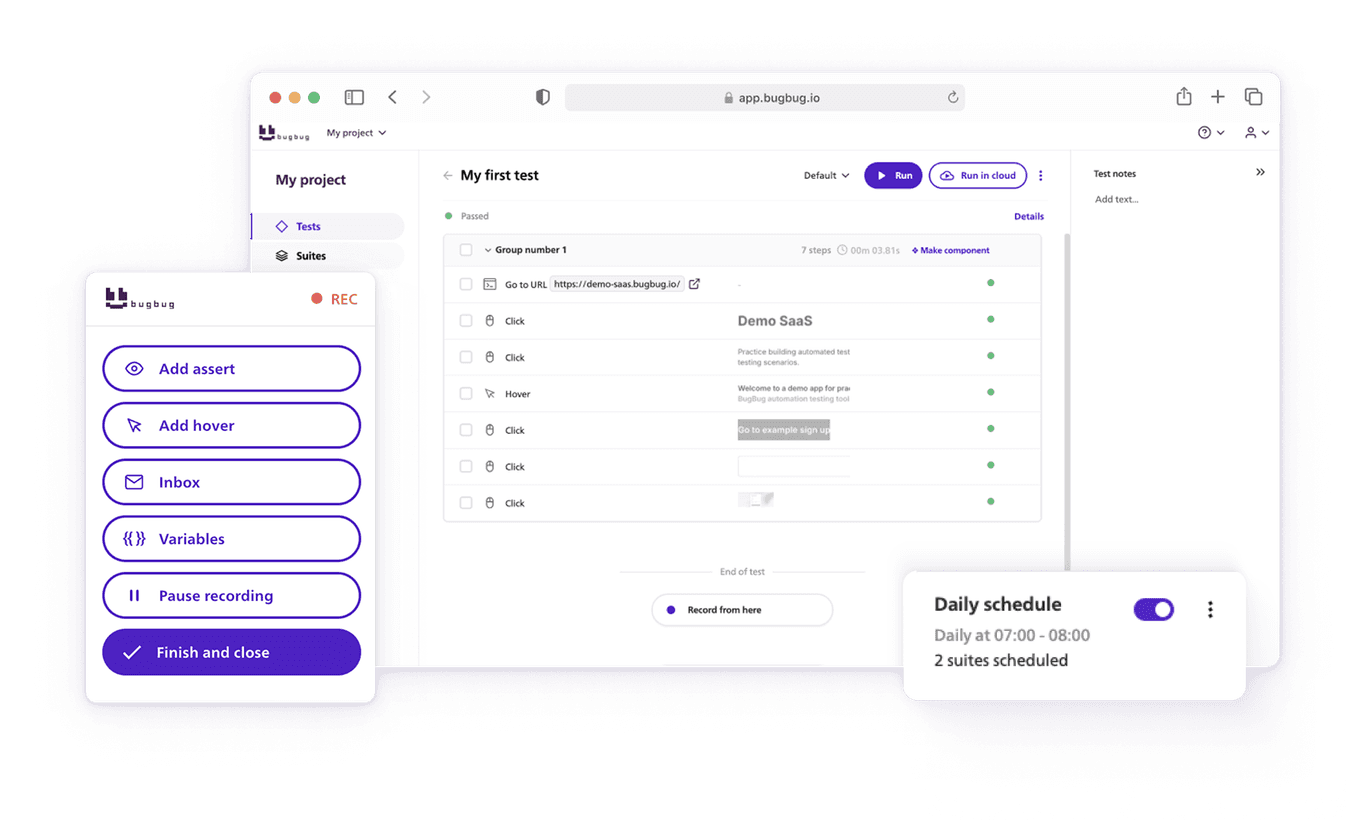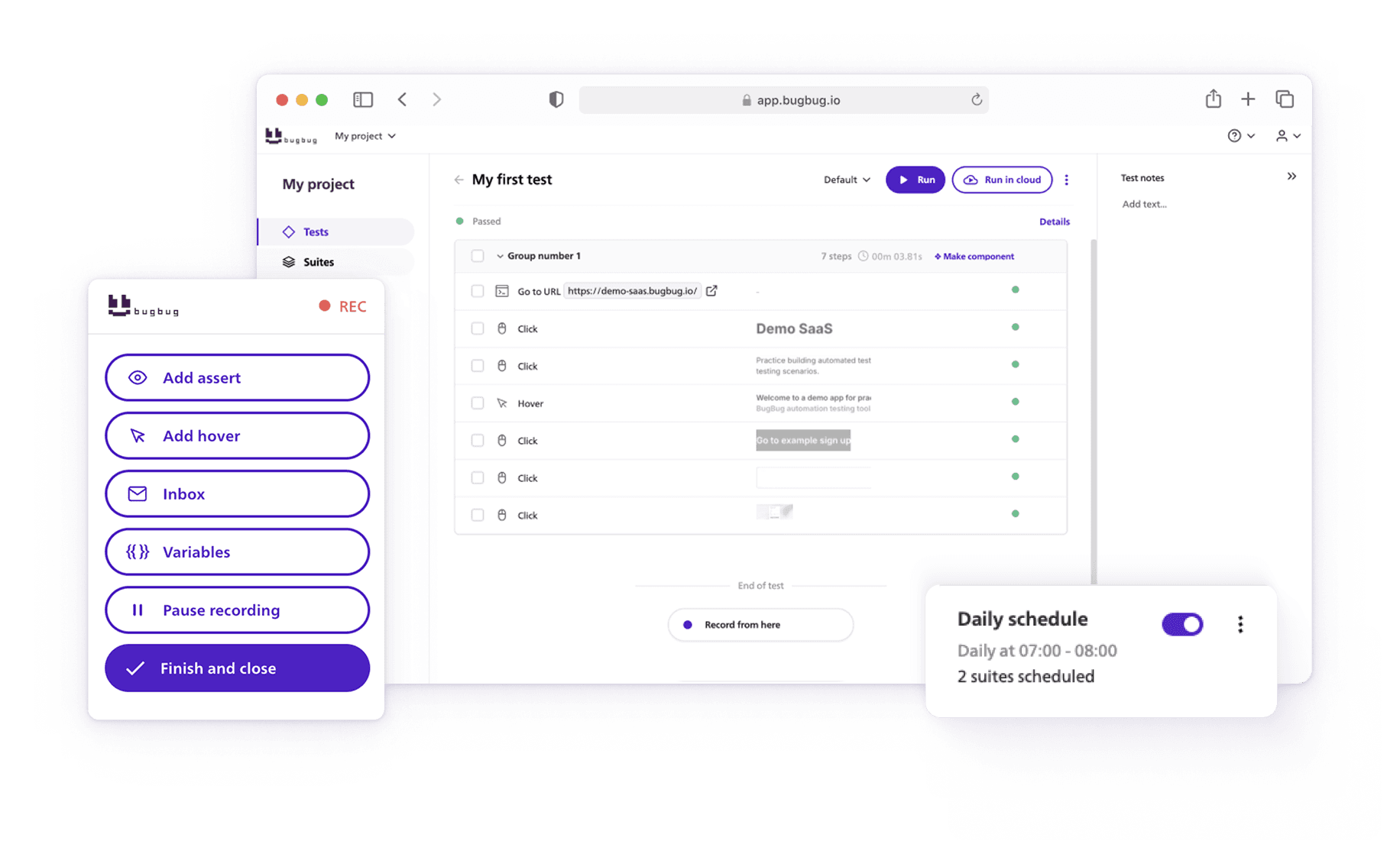When it comes to software testing, Katalon Studio and Selenium are two of the most popular options available. Both have their own strengths and unique features, making it a challenge to decide which one is better for your needs.
🤖 Summarize this article with AI:
💬 ChatGPT 🔍 Perplexity 💥 Claude 🐦 Grok 🔮 Google AI Mode
Selenium is a widely recognized open-source tool that offers powerful automated testing capabilities. It supports various programming languages and is known for its flexibility. However, Katalon Studio, which is built on top of Selenium and Appium, provides a more user-friendly experience and additional features that can enhance productivity.
In this article, we will explore the key differences between Katalon vs Selenium to help you decide which one is better for your specific requirements. We will delve into how Katalon supports integrated test management, while Selenium can be used with various test frameworks. Additionally, we will discuss why Katalon may be seen as faster than Selenium in certain scenarios and how it simplifies the testing process.
🎯TL;DR
- Katalon Studio and Selenium are popular automated testing tools with unique strengths and features.
- Selenium is a flexible, open-source tool that supports multiple programming languages, ideal for complex, customizable testing.
- Katalon Studio, built on top of Selenium and Appium, offers a user-friendly interface and built-in features for web, API, mobile, and desktop testing.
- The choice between Katalon and Selenium depends on project needs: Katalon is better for rapid setup and ease of use, while Selenium offers extensive customization and scalability.
💡 Check also:
Selenium vs Katalon: An Overview
Selenium supports multiple browsers and platforms, making it a versatile tool for developers. It also offers powerful automated testing through Selenium IDE, a tool that is built on top of Selenium. However, Selenium provides web application testing, whereas Katalon provides broader testing capabilities, including API, web, and mobile testing. Katalon also provides built-in features that are not available in Selenium, such as built-in reporting and analytics.
While Selenium is often integrated into existing development workflows due to its open-source nature and extensive support, Katalon also provides comprehensive support and easy integration, making it a strong contender in the automated testing space. By examining the pros and cons of both tools, we aim to provide a clear understanding of whether Katalon is better than Selenium or if Selenium remains the top choice for your testing needs.
Choosing Between Katalon and Selenium
The decision to use Selenium or Katalon Studio often hinges on specific project requirements and team capabilities. For teams with strong programming skills and a need for extensive customization, Selenium remains the preferred choice. Its robust framework and support for various scripting languages offer unmatched versatility. Furthermore, Selenium’s integration with other tools like Selenium and Appium broadens its application scope, making it suitable for complex, multi-faceted testing environments.
Conversely, Katalon Studio is ideal for teams seeking an out-of-the-box solution that accelerates the test creation process. Katalon Studio provides an all-in-one platform that reduces the setup time and simplifies the testing workflow. Its ability to handle different types of testing, including regression testing and data-driven testing, without extensive coding makes it a practical choice for many organizations. Additionally, the active Katalon community and readily available resources contribute to its growing popularity as a reliable test automation tool.
Katalon Studio
Katalon Platform is an all-in-one automated testing tool designed to automate tests for web, API, mobile, and desktop applications.
Key Features:
- Intuitive user interface with built-in keywords for creating automation test scripts
- Recording and playback capabilities for quick test case creation
- Integrated debugging tools for seamless testing process
- Rich reporting features to track testing progress
- Extensive support for web testing, API testing, mobile testing, and desktop testing
- Integrates with CI/CD tools to streamline test automation
- Provides both manual and automated testing solutions
Strengths:
- Easy to use with minimal programming skills required
- Quick setup and deployment for rapid test automation
- Comprehensive out-of-the-box solution
- User-friendly interface for efficient test case management
- Katalon offers extensive built-in libraries and keywords
Limitations:
- Limited customization for complex test scenarios
- Less flexible than code-centric test frameworks like Selenium
- Some advanced features may require a paid subscription
Best Use Cases:
- Small to medium-sized projects with diverse testing needs
- Teams looking for a robust, out-of-the-box automated testing tool
- Projects requiring both manual and automated testing
- Organizations needing rapid test automation with minimal setup time and effort
Check also our article on the Top 10 Katalon Alternatives.
Selenium
Selenium is an open-source tool widely used to automate web application testing. It supports multiple programming languages such as Java, C#, Python, and JavaScript.
Key Features:
- Cross-browser compatibility for comprehensive web application testing
- Selenium WebDriver API for powerful test case creation
- Extensive community support and resources
- Supports parallel test execution with Selenium Grid
- Flexibility to create custom automation test scripts
- Integrates with various tools and frameworks for enhanced testing capabilities
- Provides language support for multiple programming languages
Strengths:
- Flexibility and scalability for large-scale test automation projects
- High level of customization for specific testing needs
- Strong integration capabilities with other automation tools and frameworks
- Strong community support offering extensive resources
- Free and open-source, reducing costs
Limitations:
- Steeper learning curve compared to Katalon Studio
- Requires more setup and programming skills to create automation test scripts
- Less user-friendly for non-programmers
- No built-in reporting; requires third-party tools for comprehensive reports
Best Use Cases:
- Large-scale projects with extensive web testing requirements
- Teams with strong programming skills needing a highly customizable framework
- Projects requiring integration with various testing tools like Appium for mobile testing
- Organizations with diverse and complex testing needs
- Environments where integration with a variety of tools is essential
Read also our guide on the best Selenium Alternative.
Automate your tests for free
Test easier than ever with BugBug test recorder. Faster than coding. Free forever.
Get started
Katalon or Selenium: Key Differences and Considerations

- Ease of Use:
- Katalon Studio: Provides a user-friendly interface, making it easier for testers without deep coding knowledge. It comes with built-in keywords, templates, and test scripts which accelerate the test creation process.
- Selenium: Requires a good understanding of programming and test automation principles. Testers need to write scripts manually, which can be more time-consuming and complex.
- Setup and Configuration:
- Katalon Studio: Simplifies setup with an all-in-one package. It includes all necessary components, reducing the time and effort required to start testing.
- Selenium: Involves setting up various components manually, including WebDriver, programming language bindings, and testing frameworks. This can be more flexible but requires more initial effort.
- Integration and Extensibility:
- Katalon Studio: Offers built-in integrations with CI/CD tools, bug tracking systems, and other software development tools. It supports both Selenium and Appium, providing a broader range of testing capabilities.
- Selenium: Highly extensible and can be integrated with almost any tool or framework. However, this requires manual setup and configuration.
- Test Management:
- Katalon Studio: Includes built-in test management features, allowing testers to organize, manage, and execute test cases efficiently.
- Selenium: Does not provide built-in test management capabilities. Testers need to use external tools for managing and organizing test cases.
- Community and Support:
- Selenium: Has a large, active community due to its long-standing presence in the automation testing market. Abundant resources, forums, and documentation are available.
- Katalon Studio: Also has a growing community and provides official support. However, the community size is smaller compared to Selenium.
- Performance:
- Katalon Studio: May offer faster test development and execution for testers due to its built-in features and ease of use.
- Selenium: Can be optimized for performance but may require more effort and expertise to achieve similar efficiency.
- Flexibility and Control:
- Selenium: Offers greater flexibility and control over the test environment and execution. Testers can customize their test scripts extensively.
- Katalon Studio: Provides less flexibility compared to Selenium but covers most common automation needs with its built-in features.
Katalon Studio, built on top of the open-source Selenium and Appium frameworks, provides a user-friendly interface and built-in features that simplify the automation process. It supports web, API, mobile, and desktop testing, making it a versatile choice for diverse testing needs. Features of Katalon Studio, such as recording and playback, integrated debugging, and rich reporting, are ideal for teams with limited programming skills. Katalon Studio also provides comprehensive test management with Katalon TestOps and detailed analytics through Katalon Analytics.
On the other hand, Selenium is a widely-used, open-source automation testing tool that offers powerful automated testing capabilities. It supports multiple programming languages, including Java, C#, Python, and JavaScript, providing flexibility for experienced developers. Selenium offers extensive customization and integration capabilities, making it suitable for complex and large-scale projects. Selenium Grid integration allows for parallel test execution, enhancing testing efficiency.
Automate your tests for free
Test easier than ever with BugBug test recorder. Faster than coding. Free forever.
Get started
Katalon vs Selenium: Conclusion
A detailed comparison between Katalon Studio vs Selenium highlights that Katalon is faster and easier to set up, whereas Selenium requires a higher level of programming skills and setup effort. Katalon allows for quicker test case creation and execution, making it a better choice for teams seeking rapid deployment. Selenium, on the other hand, can be used for more customized and scalable solutions, suitable for projects requiring detailed control over the testing process.
If you need a powerful automated testing tool with minimal setup and user-friendly features, Katalon may be the better tool for your team. For projects that require extensive customization, integration with various tools, and high scalability, Selenium is the better choice. Katalon Studio allows teams to leverage the strengths of Selenium and Appium with added simplicity, whereas Selenium offers a flexible and robust framework for seasoned developers.
When it comes to Katalon vs Selenium, both are popular and capable automation tools. A comprehensive comparison shows that one is not necessarily better than the other; rather, the choice depends on your specific testing requirements and the level of programming skills within your team. By understanding the differences between Katalon and Selenium, you can decide which one is the better fit for your project's needs.
Happy (automated) testing!



